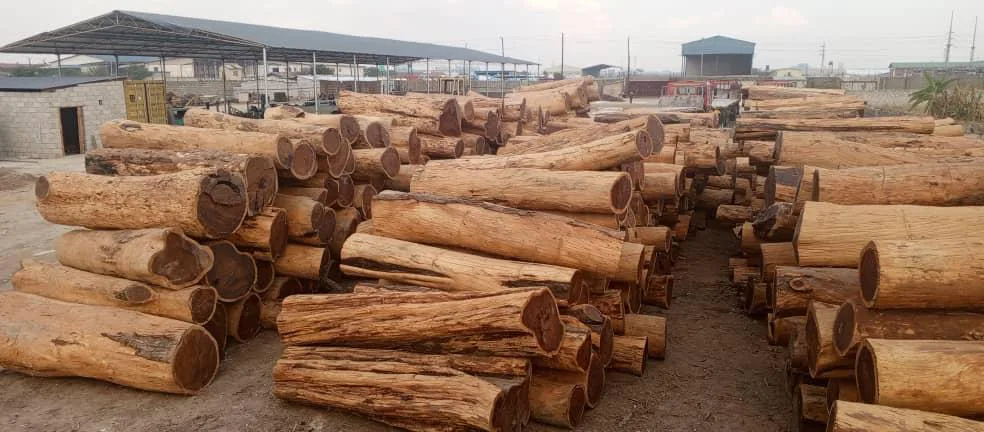Judges deliver landmark ruling in Zambia’s fight against forest crimes, seizing logs, trucks, and property tied to illicit trade.
Lusaka, Zambia — In a landmark decision, the Lusaka High Court has ordered the forfeiture of timber and assets valued at more than $1 million, striking a major blow against Zambia’s illegal logging trade. The ruling, issued on September 29, 2025, underscores the government’s resolve to protect the country’s forests from criminal exploitation.
The case was brought by the Director of Public Prosecutions (DPP) using Zambia’s Non-Conviction Based Forfeiture law — a legal mechanism designed to prevent criminals from profiting from illicit activities, even without a full conviction. The approach is increasingly being used to address complex environmental and financial crimes, where proceeds from illegal activities can be swiftly moved or disguised.
Seizure of Mopane and Mukwa Logs
The origins of the case date back to August 20, 2024, when the Department of National Parks and Wildlife (DNPW) intercepted four trucks loaded with timber in Chirundu District. The timber was being transported for export through the Chirundu border post, raising immediate suspicions.
Subsequent investigations traced the source to SENA Plus Investments in Lusaka, owned by Chinese national Mr. Wang Xue Xin. Authorities raided the company’s premises, uncovering 1,899 Mopane logs, 152 Mukwa logs, and 19 Mupapa logs, along with large quantities of timber planks. The operation also led to the seizure of heavy machinery, trucks, trailers, and the entire timber yard.
Mopane and Mukwa are valuable hardwood species that play a vital role in Zambia’s ecosystems. Their illegal harvest not only strips forests of biodiversity but also disrupts wildlife habitats and undermines rural communities that depend on natural resources for their livelihoods.
Criminal Charges and Guilty Plea
Mr. Wang was subsequently charged under the Zambia Environmental Management Act and the Forest Act with illegal possession of forest produce and the mixing of marked and unmarked timber. Though he initially pleaded not guilty, on September 3, 2025, he admitted guilt and was fined K80,000.
While the fine brought closure to the criminal aspect, the State pursued additional measures to ensure Wang and his company did not retain any benefit from their illicit trade. Through the Non-Conviction Based Forfeiture proceedings, prosecutors sought to confiscate not only the timber but also the vehicles, machinery, and property connected to the crime.
Judges Send a Strong Message
The case was heard by a three-judge panel comprising Hon. S. M. Wanjelani, Hon. A. Malata Ononuju, and Hon. I. M. Mabbobloblo. Their unanimous ruling granted the State full ownership of the seized assets.
In a strongly worded judgment, the court warned property owners to exercise vigilance in how their assets are used. “Our decision should send and reinforce a clear message,” the judges wrote, “that owners must ensure their properties are not instrumentalities in the commission of economic and financial crimes. Courts have a duty not to embolden illegal logging but to safeguard Zambia’s natural resources for future generations” (Judgment, p. 80).
Wider Implications
The ruling is being hailed as a significant precedent in Zambia’s fight against illegal logging, which has been linked to transnational crime networks and the broader illegal wildlife trade. Beyond the financial losses to offenders, such forfeitures disrupt the economic incentives driving the trade and reinforce the risks faced by those engaging in it.
The Department of National Parks and Wildlife, working with the Forestry Department, has pledged to continue monitoring, intercepting, and dismantling timber smuggling operations. Officials emphasised that community involvement is crucial, urging citizens to report suspicious activities to local authorities.
By striking at the economic foundations of timber trafficking, the High Court’s decision is expected to deter further crimes while strengthening conservation efforts. It highlights Zambia’s growing commitment to protect its forests — not only as vital ecological systems but also as resources essential to the well-being of present and future generations.


0 Comments